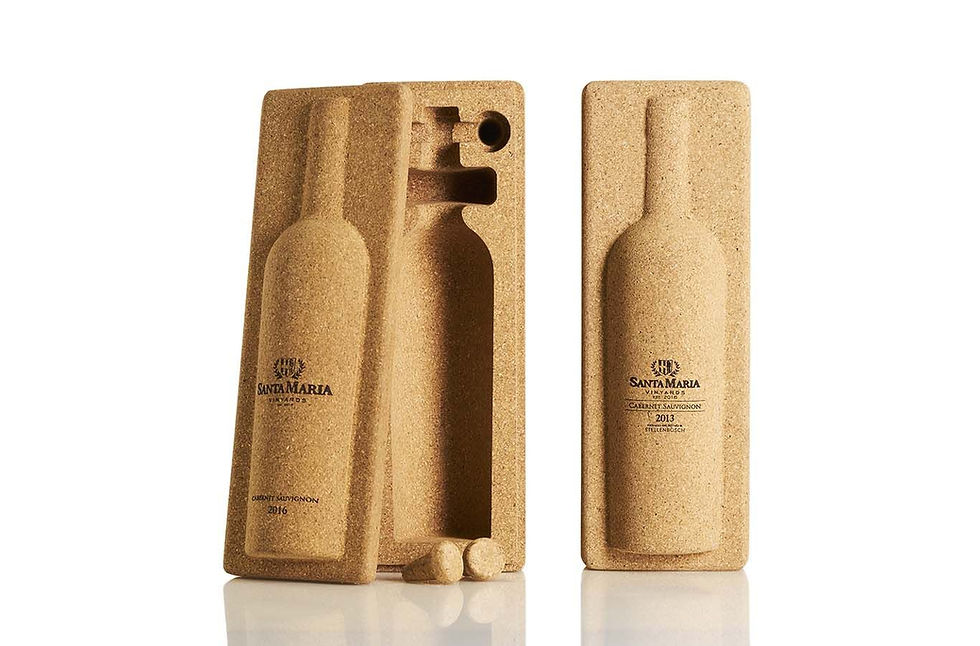Choosing the Best Carrier for Your Four-Pack Bottle
- infohubblog
- Feb 6
- 4 min read

Finding the right carrier for your four-pack bottles is essential. A good carrier keeps the bottles safe, easy to carry, and attractive. This guide explores key factors to consider when selecting the best option.
Understanding the Importance of a Quality Carrier
A high-quality bottle carrier protects bottles from damage. It also provides a better grip for handling and transport. Businesses use well-designed carriers to improve customer experience and brand visibility.
The right carrier reduces the risk of breakage. Glass bottles, in particular, need strong support. A weak carrier can lead to accidents, causing financial loss and safety concerns. A sturdy material ensures bottles stay in place and do not shift during transport.
Branding also plays a role. A well-designed carrier enhances shelf appeal. Customers often notice packaging before the product. A stylish and functional design makes your product stand out in a competitive market.
Sustainability matters too. Many businesses now choose eco-friendly materials. Recycled paperboard and biodegradable options help reduce environmental impact. Consumers appreciate brands that use sustainable packaging.
Customization for Special Events
Custom carriers elevate event experiences. Many brands create themed packaging for festivals, holidays, or special promotions.
Limited-edition designs attract attention. Unique packaging increases perceived value. Customers often keep well-designed carriers as collectibles.
Personalized messages enhance customer connection. Adding names, quotes, or seasonal greetings makes packaging more engaging.
Using custom printed 4 pack bottle carrier solutions allows businesses to offer a personalized touch. These carriers enhance branding while ensuring secure transport for beverages.
Choosing the Right Material for Your Bottle Carrier
Material choice affects durability, appearance, and cost. Common materials include cardboard, kraft paper, plastic, and wood. Each material offers different benefits depending on your needs.
Cardboard is lightweight and cost-effective. It is also customizable, allowing for high-quality printing. Many beverage companies prefer cardboard carriers for branding purposes. However, it may not be as durable in humid conditions.
Kraft paper carriers provide a rustic, natural look. They are eco-friendly and biodegradable. They work best for light to medium-duty applications but may not be ideal for heavy glass bottles.
Plastic carriers are durable and water-resistant. They provide strong support but are not environmentally friendly. Some brands use recycled plastic to reduce waste.
Wood carriers offer a premium feel. They are reusable and great for gifting purposes. However, they are heavier and more expensive than other options.
Size and Structure Considerations
Choosing the right size ensures a snug fit for bottles. Carriers that are too loose may lead to bottle movement and breakage. If too tight, they make handling difficult.
Most carriers fit standard 12oz or 16oz bottles. Custom options are available for unique bottle sizes. Ensuring the carrier holds the bottles securely without excessive pressure is key.
Handle strength is another factor. A weak handle can break under weight. Sturdy, reinforced handles provide better grip and prevent accidents. Foldable handles offer additional convenience for storage.
The structure should also support stacking. If carriers are placed on top of each other, they should maintain stability. Reinforced bottoms prevent collapse, ensuring safety during transport.
Design and Branding Opportunities
Custom designs help businesses stand out. A well-branded carrier serves as a marketing tool, catching customer attention on store shelves.
Color choices impact customer perception. Bold colors create a striking effect, while neutral tones provide a classic look. Fonts and graphics should align with brand identity.
Die-cut handles enhance ease of use. Some brands add cut-out windows to showcase bottle labels. UV coating or embossing can elevate the carrier’s aesthetic appeal.
Including product information is helpful. Adding brewery details, flavor profiles, or serving suggestions increases customer engagement. Interactive packaging, such as QR codes, provides additional value.
Durability and Load Capacity
A strong carrier prevents damage. The load capacity depends on material strength and structural design. Testing load capacity before finalizing a carrier is important.
Reinforced corners improve durability. Many high-quality carriers feature additional support layers. This helps in preventing tears and extending shelf life.
Moisture resistance matters. Beverages stored in coolers may cause condensation. Waterproof coatings prevent sogginess and maintain carrier strength.
Eco-Friendly Packaging Solutions
Sustainable packaging is a growing trend, with many brands now opting for recyclable and biodegradable materials to reduce waste. Innovations in eco-friendly packaging are constantly emerging. For instance, the top sustainable bottle wrapping innovations to watch highlight some of the most advanced and impactful solutions. Eco-friendly carriers include:
Eco-friendly carriers include:
Recycled paperboard options that decompose naturally
Biodegradable kraft carriers made from plant-based materials
Reusable wooden carriers for long-term use
Minimalist designs using less material to reduce waste
Customers prefer sustainable packaging. Investing in environmentally friendly options improves brand reputation and customer loyalty.
Cost-Effective Carrier Options
Budget plays a role in carrier selection. While premium materials look appealing, they may not always be necessary.
Cardboard and kraft carriers are affordable. They offer good durability while keeping costs low. Bulk purchasing helps reduce expenses further.
Reusable options provide long-term savings. Wooden carriers, though initially costly, can be used multiple times. This is ideal for subscription services or limited-edition packaging.
Printing costs also affect the budget. Simple designs lower production expenses. Digital printing offers cost-effective branding solutions for small businesses.
Safety and Handling Features
Safety should never be overlooked. A poorly designed carrier increases the risk of accidents.
Ergonomic handles improve grip. Carriers with comfortable handles reduce strain on fingers. This is especially important for heavier glass bottles.
Non-slip coatings prevent accidents. Some carriers include anti-slip surfaces for added security. This reduces the chances of dropping bottles during transport.
Tear-resistant edges enhance longevity. Well-constructed carriers last longer, providing better value for businesses and customers.
Conclusion
Selecting the best four-pack bottle carrier requires careful consideration. Factors like material, durability, branding, and sustainability influence the choice. Businesses benefit from well-designed carriers that protect bottles and enhance product presentation. Investing in quality packaging improves customer experience and brand loyalty.






Comments